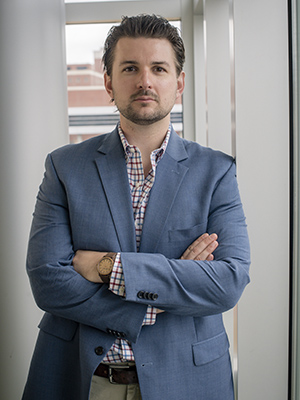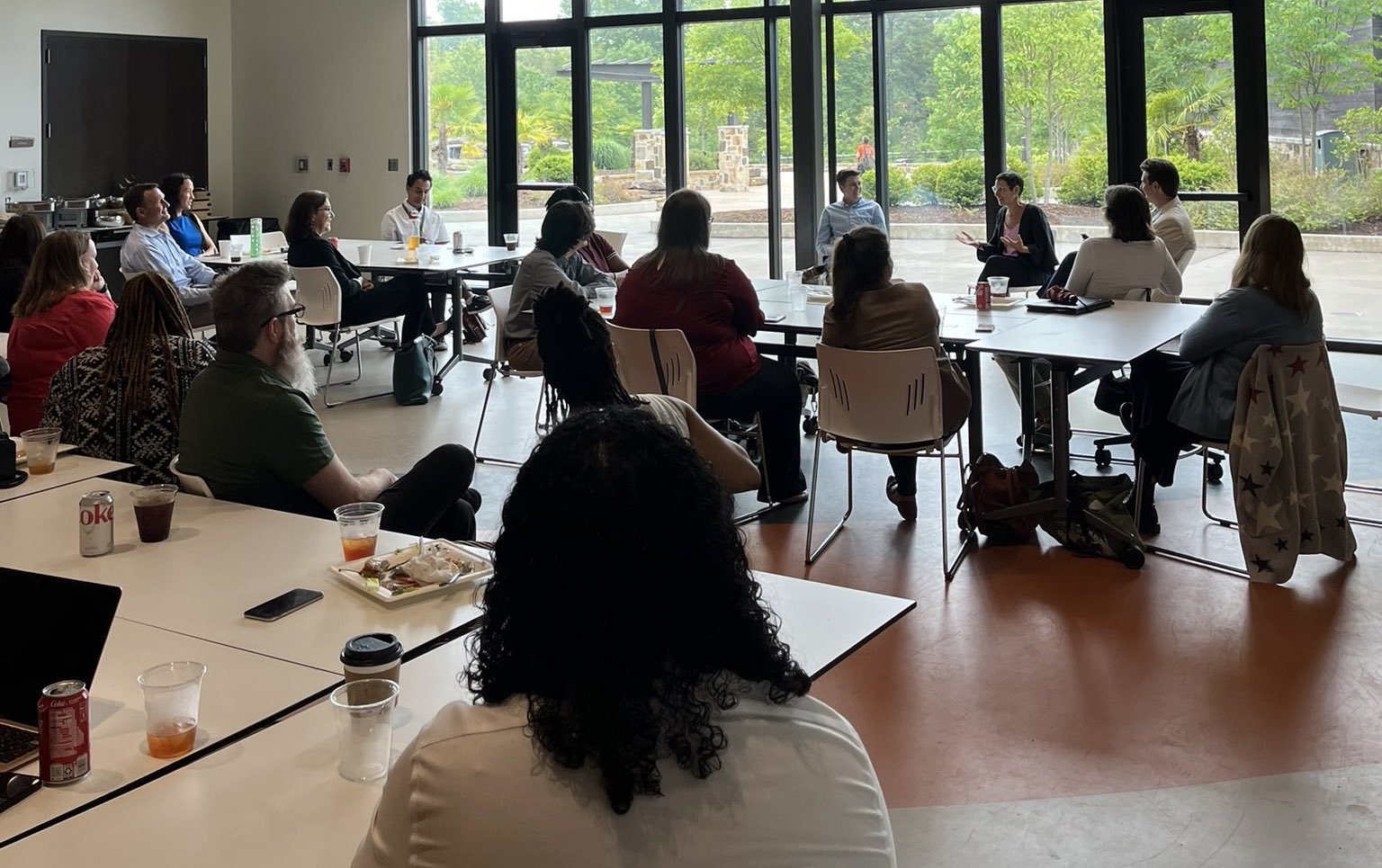Chapter Spotlight: Alabama SSN Collaborates with Local Civic Organizations
“Through our 2022 partnership with SSN's Dr. Peter Jones, Alabama Appleseed was for the first time able to tell lawmakers just how expensive it is to suspend drivers' licenses…It means a lot to be able to fight 'tough-on-crime' rhetoric with facts. If we can keep going this way, we'll eventually win." - Leah Nelson, Research Director, Alabama Appleseed
In Alabama, individuals who have unpaid traffic tickets or court debt can have their driver’s license suspended, affecting around 170,000 Alabamians every year. When Alabama Appleseed, a local non-profit and non-partisan organization, was looking to make the case to lawmakers about how harmful this policy is, they found the perfect researcher to help: Alabama SSN chapter leader Peter Jones. This was not the Alabama chapter’s first such connection. In fact, it was part of a multi-year effort to build relationships with civic organizations that recently culminated in an event bringing together over two dozen organization staff and around ten local researchers to foster further connections.

Jones is an Assistant Professor of Political Science at the University of Alabama at Birmingham where his research focuses on the public budgeting processes and financial management of local and state governments. That made him an ideal candidate to work with Alabama Appleseed on their push to stop the suspension of driver’s licenses.
“I mean this is the classic SSN story,” said Jones of the connection. “It started years ago and we never thought this would happen, but…I had a former student who did an internship with Alabama Appleseed as one of their law fellows. They hired her and I had her come to a class to talk to my students about her public service journey. I had recently read a report that Alabama Appleseed had done on fines and fees, so I just said to her: ‘This is in my wheelhouse, I’m interested if they need any help.’ She connected me to their research director, we had a meeting, and it went from there.”
After meeting with Leah Nelson, Research Director for Alabama Appleseed, Jones quickly got to work analyzing how much the state loses in taxes because they suspend driver’s licenses for unpaid debt. He found that Alabama is losing $804.86 in tax revenue per suspended license because individuals who lose their license typically aren’t able to get jobs that would provide taxable income, and they aren’t paying taxes on gas.
Alabama Appleseed was able to use his analysis in their meetings with policymakers regarding a bill that would end this policy. Nelson shared of their work together:
"The unfortunate reality is that in Alabama, a lot of public policy decisions are not based on evidence, especially in the criminal legal context. For instance, Alabama's policy of suspending drivers' licenses for unpaid court debt does not keep Alabamians safter, but has collateral consequences that harm individuals and families and drive incarceration. Through our 2022 partnership with SSN's Dr. Peter Jones, Alabama Appleseed was for the first time able to tell lawmakers just how expensive it is to suspend drivers' licenses. We didn't get reform over the finish line this year, but lawmakers referenced Dr. Jones' findings in committee hearings and meetings. It means a lot to be able to fight 'tough-on-crime' rhetoric with facts. If we can keep going this way, we'll eventually win."
The connection between Alabama Appleseed and the Alabama SSN chapter didn’t stop there. Instead, chapter co-leaders Jones, Peggy Biga, and Bridgett King saw an opportunity to bring researchers and civic organizations like Alabama Appleseed together for an event meant to spur similar collaborations.
On May 24th, staff from local civic organizations, including the ACLU of Alabama, A+ Education Partnership, Alabama Arise, and others, and researchers from local universities gathered at the Birmingham Zoo to learn more about each other’s work. “The focus was to understand from the policy org side, their constraints and what they’re looking for in working with researchers. And then I think really the bigger impact was for those policy organizations to understand us as researchers, what our workflow is, how to get us to respond to an email, and all of those things,” said Jones. Since the event, Jones has already been contacted by one of the organizations in attendance to schedule a follow up conversation.

The event also builds on the chapter’s work with Alabama Forward and the Southern Poverty Law Center (SPLC) to create an asset map of the state’s civic organizations. Jones is now leading a landscape analysis to help SPLC better understand what organizations are working in the state and what their priorities are.
Looking forward, the Alabama chapter aims to continue their work building relationships between civic organizations and researchers in the state, including by organizing additional events that bring these groups together and focus on different avenues for collaboration.
Learn more about the Alabama SSN chapter here.
